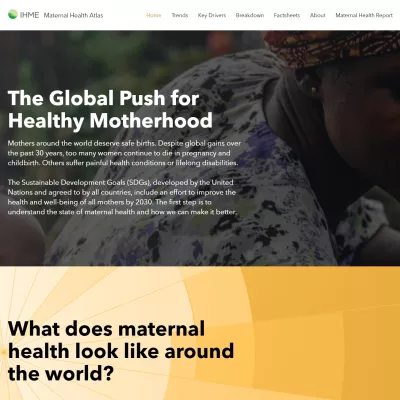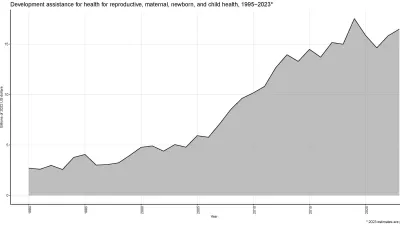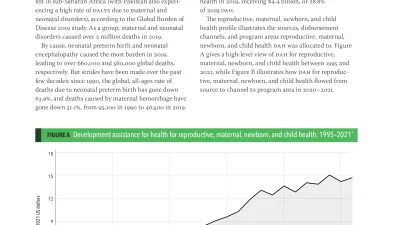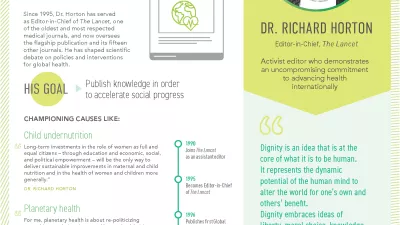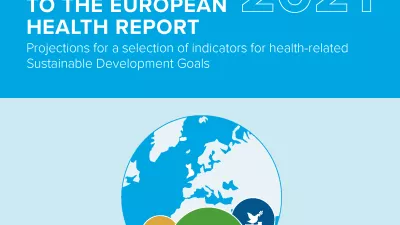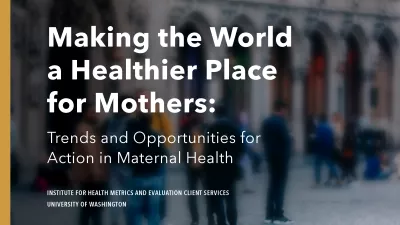Maternal health
Maternal health refers to the health of women and childbearing people during pregnancy, childbirth, and the post-natal months. Despite overall improvement in maternal outcomes since 1990, disparities remain.
Photo by Reuters/Anushree Fadnavis.
Over 2 million
deaths were caused by maternal and neonatal disorders worldwide in 2021.
80%
of the world’s maternal deaths occurred in only 30 countries, including 7 of the world’s 8 most populous countries.
40%
fewer women died during pregnancy and childbirth between 2000 and 2021, compared with 7% between 1990 and 2000, likely reflecting increased attention and funding for maternal health sparked by the United Nations’ (UN) Millennium Development Goals.
59%
fewer women died from hemorrhage (the leading cause of maternal death worldwide) in 2021 than died in 1990.
Interactive data visuals
Datasets in our catalog
Visit the Global Health Data Exchange (GHDx) to download our estimates and data sources for maternal health.
United States Maternal Mortality Ratio Estimates by Race and Ethnicity 1999-2019
Estimate
United States Maternal Mortality Ratio Estimates by Race and Ethnicity 1999-2019
El Salvador Family Planning/Maternal and Child Health Survey 1993
Survey
El Salvador Family Planning/Maternal and Child Health Survey 1993
2019 Pregnancy Outcomes in Health Facilities in Kigoma Region, Tanzania: Final Report
Report

